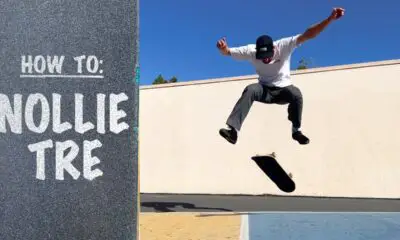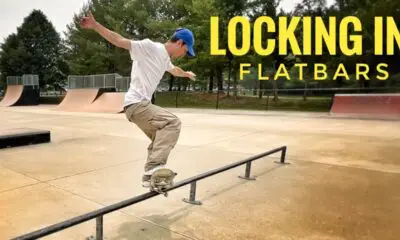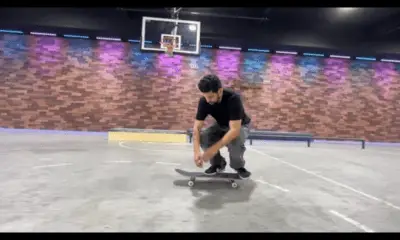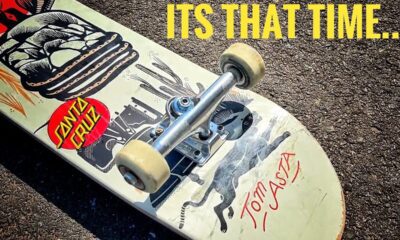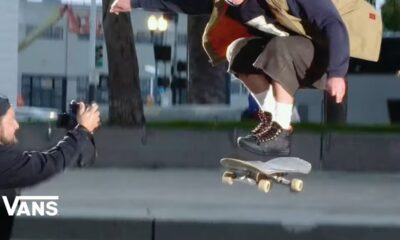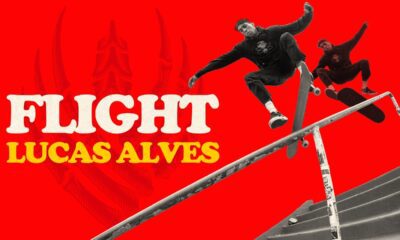CULTURE
UPDATE: FUCT Wins Supreme Court Case Allowing It to Trademark Its Name


Solicitor General Noel Francisco said in his court filing that Congress does not want the federal government to “affirmatively promote the use of graphic sexual images and vulgar terms by granting them the benefits of registration.”
The administration also said the trademark law does not violate the First Amendment because it is not a restriction on offensive ideas. Instead it its aimed at an offensive means of expressing whatever thought the company wishes to convey, government lawyers say.
In response, Brunetti argued that if the justices uphold the trademark restriction, “state and local governments could effectively block unpopular organizations advancing controversial causes” thought to be scandalous to at least a portion of the public.
The case will be heard on April 15 with a decision slated to be issued by the end of June. You can read more about it in this article published this morning by NBC News.
UPDATE 06.24.19: The highest court in the land has sided with Erik Brunetti, allowing him to trademark the name FUCT. This sets a new precedence for laws in the United States on trademarking profanity, and opens the door for Dill and AVE to properly register Fucking Awesome.
UPDATE 04.16.19: FUCT’s case was heard before the Supreme Court yesterday; and NPR has posted a nice recap on where things stand now. You can view some excerpts below.
“Go to eBay, and you’ll see a lot of counterfeits, or go to Amazon, and you’ll see lots of counterfeits,” he [Eric Brunetti] said, noting that the knockoffs are costing him real money.
If he could get his brand trademarked, he could go after the copycats and shut them down. The U.S. government Patent and Trademark Office, however, has consistently rejected his trademark application, contending that those letters, “FUCT,” violate the federal statute that bars trademark protection for “immoral,” “shocking,” “offensive” and “scandalous” words.
Justice Samuel Alito asked what would happen when “really dirty words” were at issue. How about “racial slurs”? asked Justice Stephen Breyer, adding those are more like “swear words,” as they are insults that sting and are remembered by those who are targeted.
“What I’m worried about,” said Breyer, is that if a racial slur is trademarked, it will appear as a product name “on every bus where it’s advertised” and on newsstands where children and others will see it.
A decision is expected by Summer. Head over to NPR to read the entire piece.
Images Via Fuct & J. Scott Applewhite/AP
CONTESTS
Get Behind the Scenes of the Red Bull Bowl Rippers
In September, Red Bull Bowl Rippers brought pro skateboarding action back to Marseille’s famous beachside Bowl Du Prado after a two-year hiatus.
As thousands of enthusiastic French spectators witnessed the action-packed event, Marc Churchill and Corbin Harris interviewed the participating skaters, as well as industry veterans such as Greg Poissonnier, Chris Gregson, and Bryce Kanights. They also spoke with the event organizer, Jeremie Grynblat, and local hero Vincent Matheron to understand what makes this unique proving ground so special and why people keep coming back to it for decades.
The first Bowl Rippers was held in 2016 at the iconic park to celebrate its 25th year. Now on its sixth edition, The Red Bull Bowl Rippers continued the Bowl Du Prado’s legacy of enshrining legends into a new era.
The Bowl Du Prado, designed by Jean-Pierre Collinet, has been visited by every great skateboarder to leave their mark on the sport. Along with famous names like Cardiel, Speyer, Trujillo, and Petersen, there are also local legends like Molinier, Benoliel, Salah, and the Matheron clan who have all contributed to the skatepark’s worldwide notoriety.
CULTURE
Atita Verghese: India’s Top Female Skater in ‘Skate Tales’
In this episode of Skate Tales, Madars Apse visited Bangalore to meet Atita Verghese, India’s leading female skater.
Atita was introduced to skateboard culture by the Holystoked crew, who constructed India’s first DIY skatepark in Bangalore. Her life was transformed when she stepped onto a skateboard, and she has never looked back.
In 2014, Atita established Girl Skate India, a non-profit organization that encourages young women to pursue skateboarding. Atita is a source of inspiration for women worldwide, particularly in India, where skateboarding is still in its early stages.
She has been involved in the construction of the majority of skateparks in her home country to this day, having learned how to mix concrete and shape transitions with the Holystoked collective.
Skateboarding has led her to appear in numerous advertisements, a TED talk, movie roles, and even a cameo in the Netflix series Skater Girl.
Atita has created a one-woman movement beyond providing boards, pads, or lessons. In a society where opportunities for girls to be free of social constraints and have fun are limited, Atita’s work is definitely worth checking out.
CULTURE
Andrew Arthur: From Sponsored Skateboarder to Fashion Photographer
The Transworld Skateboarding crew catches up with Andrew Arthur in this episode of “Brain Floss.”
Andrew Arthur was raised in Oceanside, California, surrounded by some of the best skaters who eventually became pros. Although he once pursued skateboarding and even reached the amateur level, his career took a different path when he found his niche in fashion photography.
Fast forward ten years and Andrew now resides in New York City, where he continues to skate and stay connected with the local scene. His latest photo project, which will be compiled into a book, is a unique take on the sun bounce setup popularized by Peter Lindbergh.
-



 PODCASTS6 months ago
PODCASTS6 months agoMike York & Daniel Castillo on The Nine Club
-



 CONTESTS6 months ago
CONTESTS6 months agoThe 2024 SLS Tour: Bigger and Better
-


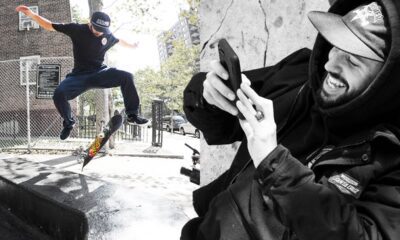


 VIDEOS5 months ago
VIDEOS5 months agoKevin Braun Shares His Favorite Skateboarding Spots
-



 CONTESTS5 months ago
CONTESTS5 months agoGiovanni Vianna’s Top 5 SLS Scores of 2023
-

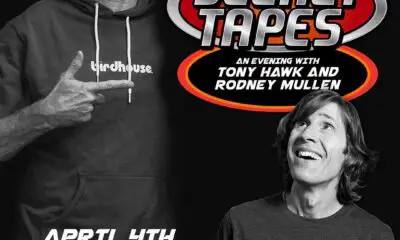

 News5 months ago
News5 months agoTony Hawk and Rodney Mullen Team Up for ‘Darkslides & Secret Tapes’
-


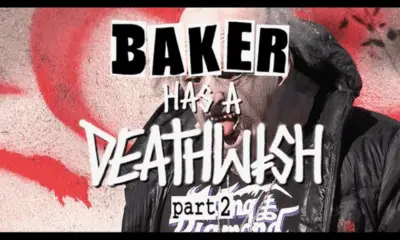


 VIDEOS5 months ago
VIDEOS5 months agoBaker Has a Death Wish Part 2
-


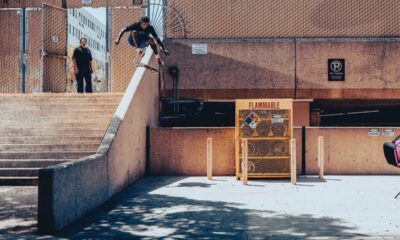


 VIDEOS6 months ago
VIDEOS6 months agoRough Cut: Ishod Wair’s ‘Spitfire’ Part
-

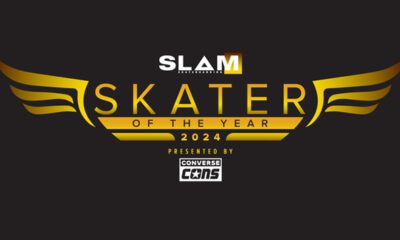

 News6 months ago
News6 months agoHayley Wilson is Slam’s Skater of the Year









